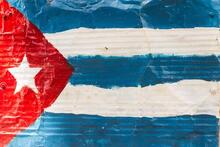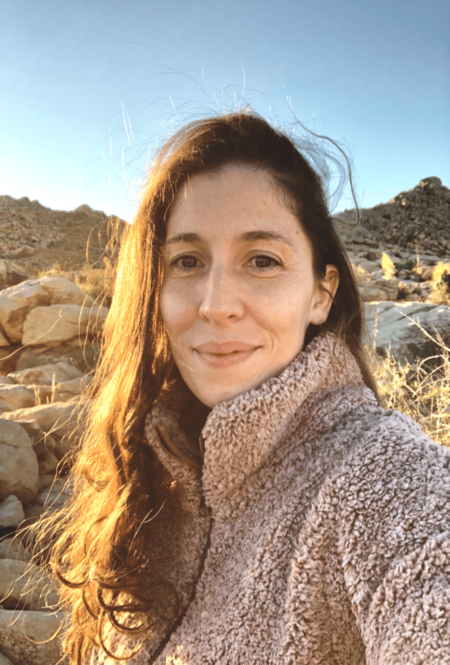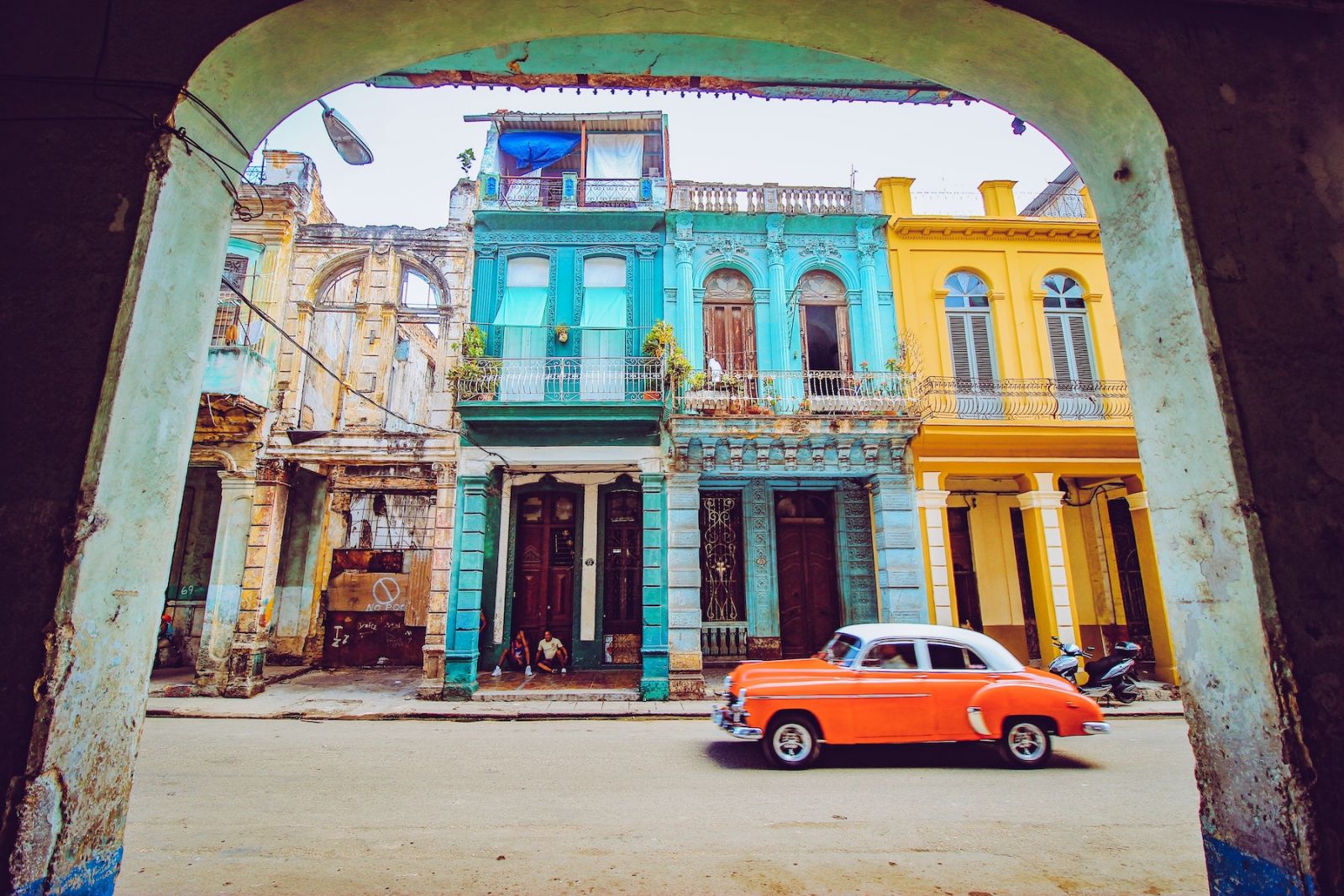Rethinking the Cuban Revolution: An Interview with Sara Kozameh

Dr. Sara Kozameh is a historian of Latin America and the Caribbean, specializing in the Cuban Revolution, social movements, agrarian history, and Black radicalism. She is currently an ACLS Emerging Voices postdoctoral fellow at Vanderbilt University. In November, she visited Yale University to deliver the talk: “Who are the Agents of History? Rethinking Cuba’s 1959 Revolution.” We spoke with her about her work and projects.
What led you to wanting to get a PhD, specically in History? Additionally, what led you to focusing on the histories of the Cuban Revolution or being a Cubanist?
I always knew that I would work on something relating to Latin America. I am the daughter of political exiles, both writers, who had to flee the Pinochet and Argentine Junta dictatorships in the 1970s. I arrived in the U.S. as a small child with my mother, still fleeing from political persecution that continued even after the dictatorship in Argentina had ended. And growing up in Los Angeles I was immersed in a world of Latin American politics. In a sense, Latin American politics and history have always been central to my understanding of self.

I always imagined I would get a Ph.D., but I wasn’t sure in what field. I majored in Political Science, later studied natural resources in Latin America, and then worked in international economic policy, so I tried to get at questions of Latin America from a range of angles. At one point, before applying to PhD programs, I was working at a bookstore and began to think about the categories that books were organized in. I realized I was most drawn to the History section. My favorite books on Latin America were in that section, including Greg Grandin’s, which I had great admiration for. I then sort of rationalized that everything had to have a history, so how could you go wrong becoming a historian? I think that, ultimately, History just felt less limiting than other fields I had considered.
When I started the Ph.D. program at NYU I was planning to study land issues in Guatemala. After taking a class with Ada Ferrer and Sinclair Thomson on Latin American revolutions I became interested in Cuba’s agrarian reform. I had been to Cuba several times as a child, but it had never occurred to me to work on Cuba. Ada encouraged me to “just go” to Cuba to see if I could find sources and make this a viable project. I felt like I was embarking on a wild-goose chase, but it was an amazing experience. I came back and told her, yes, this is what I’m going to do for my dissertation.
There has been a tradition of thinking about the Caribbean as a place where people are passive or irrational. I think that it’s important to consider that actions taken by Cubans in support of revolutionary change, or even their government today, have been deliberate and rational decisions.
What was your biggest obstacle in accessing archival materials in Cuba as a U.S. based scholar?
Archival sources on the post-1959 era in Cuba are hard to get access to for anyone, not just people coming from the United States. In my case, I was working on land reform, a topic that still animates legal conicts between both countries. There are still active lawsuits led by U.S. citizens against the Cuban state for the expropriation of land. When I arrived in Cuba asking to see documents on agrarian reform, I quickly realized that the topic was a matter of national security for Cuba. From their vantage point, I was a U.S. citizen seeking details about land transfers, one of the most contentious topics in US-Cuba relations. They worried that I might provide information to people and companies with claims against Cuba in the US Foreign Claims Settlement Commission. The Ministry of Agriculture has about 480 legajos of agrarian reform archives that are unprocessed and remain behind closed doors. A couple of Cuban historians who I know have been allowed to work with those les, but I was not given access.
I had to do my research in another way. I went to the provinces, los archivos provinciales. There is a lot there if you look hard enough. The other thing I did in order to get around the problem was to build an archive based on personal collections. I went to people’s homes–people who had either worked in the agrarian reform institute, or had lost or acquired land in the agrarian reform–interviewed them, and asked if they had any documents they could show me. So, a lot of what I ended up working with were personal archives, the stu tucked away in people’s closets. I think it really helped to come at the topic with a lot of humility, willing to accept the limitations and very willing to hear the life stories of regular Cubans who participated in these historical processes. Had I had more access to ocial sources, I may not have ended up collecting the 65 oral histories that I conducted, and my work would have had a very dierent feel to it.
How does your personal experience reect in your approach to history as a discipline?
One of the things that drew me to the discipline of history was its ability to deal with and understand the role of regular people in politics. I had an inclination toward economic history, but actually came to really like history from below and recognized quickly that I was interested in pursuing that route. In my studies and work before entering the graduate program, I had observed something that I later identied as also present in the historiography of Latin America and specically the Caribbean, which was an unwillingness to seriously consider regular people as political actors. When I went to Cuba the rst summer of graduate school I realized that something similar occurred to Cubans who continued to support their government or, at the very least, had chosen not to go against it, not because they were afraid of repercussions but because of their appreciation and understanding of the historical process Cuba has undergone. I realized that the deliberate political choices of those people were invisible to U.S. audiences. So the combination of learning about history from below and seeing in Cuba how these histories were ignored sort of cemented my interest in that approach. My book won’t be entirely a history from below, but the approach was very formative for how I theorized the project I was going to do.
In your work you focus on oral histories, what led you to wanting to center retellings of the rst decade of the Cuban Revolution through testimonial narratives in the present? In what ways are recollections through verbal interviews a powerful medium?
As I told people in Cuba what I was researching, they would just start telling me stories about agrarian reform in their families. To some extent, I was unable to avoid oral history because people would just begin to tell me their stories. As they encouraged me to go interview their relatives, for example, I realized how important the moment and process had been to people. A number of Cuban scholars also really encouraged me to conduct oral histories, telling me that if nobody did that work, those stories would eventually be lost.
After understanding the value of those histories that are not being captured through any other medium, I spent a lot of time in the countryside. In rural areas, where many peasants were illiterate at the start of the revolution there is limited written material that meaningfully captures the experiences and lives of people who lived through the revolution’s transformations. I certainly have not done enough, I think we need oral history teams to go in and just sit with these people for days, talk to them about their life trajectories, but I did what I could because of the power that I realized they had in showing the role of regular people in times of revolution. Without insight into their lives, it would be much more dicult to tell histories of the Cuban Revolution from below–we wouldn’t have access to some of the examples of armed rebellion against landowners that occurred both before and after the revolution, we wouldn’t know the extent to which agrarian reform policies transformed how Cuban peasants thought of themselves, for example. Without the oral histories, many facets of the revolution would remain buried.

How was your experience presenting your forthcoming book at the Latin American History Speaker Series?
It was wonderful. I was so happy to see a lot of undergraduate students attend. I appreciated their attentiveness and thought they were very engaged. I felt very welcomed by the graduate student group. It was really nice to get to spend time hearing about dierent dissertation projects, especially after the long pause that the pandemic meant for so many in academia. It was also just fun to be in a space where graduate students are still thinking about the work they are going to be doing and to get to participate in those conversations. Once you leave graduate school there tend to be fewer of those exciting and generative initial moments. It was also great to get feedback and to hear that my work matters to certain groups of graduate students. I am really honored to have had the opportunity to present here, in such a great environment, and to have had those conversations with the students.
How do you think your work could be in conversations with audiences outside of academia? What are the political implications of your work?
I hope that the book will be read not only by scholars and students at universities, but also people who are interested in thinking more about what the nature of the Cuban Revolution was. Depictions in the media about the revolution both in Cuba and in the U.S. give a distorted view of the reality on the ground. As a result, the media often wonders why and how the revolution or its government have lasted so long. I think that thinking about the historical role played by regular people who took part in the revolution helps elucidate that question. There has been a tradition of thinking about the Caribbean as a place where people are passive or irrational. I think that it’s important to consider that actions taken by Cubans in support of revolutionary change, or even their government today, have been deliberate and rational decisions.
By Gabriel Rivera Cotto and Jess Cruz, History Department
